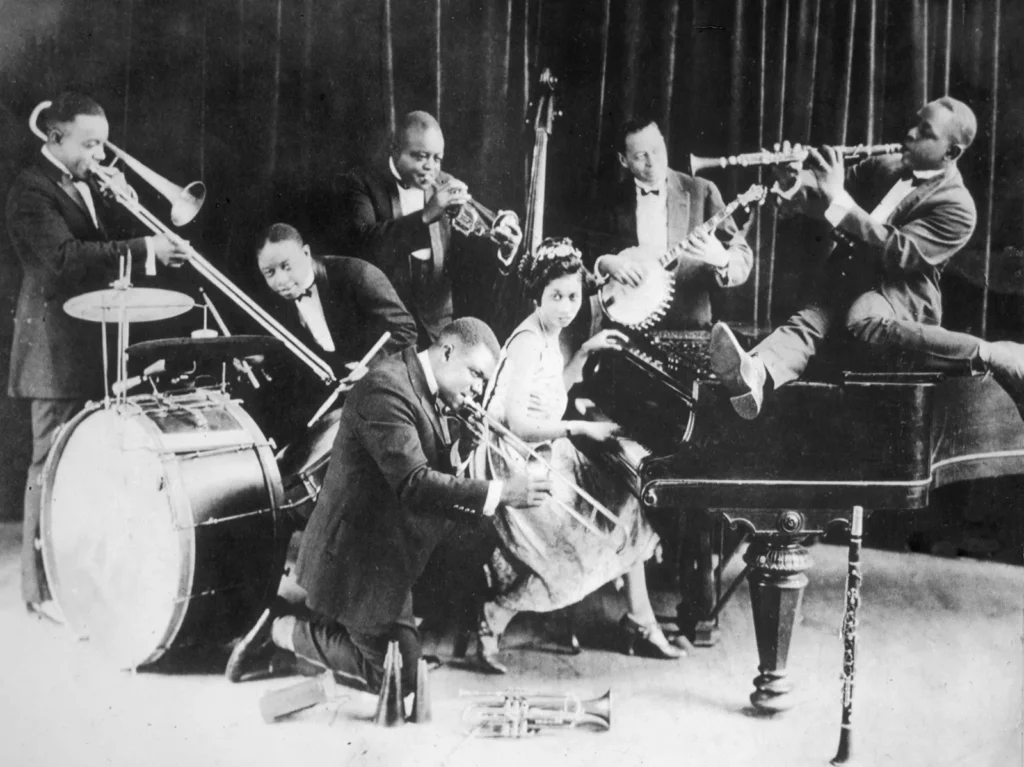JAZZ:A Musical Phenomenon
“If you have to ask yourself what jazz is, you will never know,” said Louis Armstrong when asked to describe jazz music. As a singer/songwriter, I find the jazz era fascinating. Let’s go by the dictionary definition of jazz. We will discover that jazz is “ a type of music of black American origin characterized by improvisation, syncopation, and usually a regular or forceful rhythm,” but that is not the full story. Jazz was birthed in the heart of New Orleans, Louisiana, in 1917. In the textbook from the Burns source, “Jazz may have sprung up in a million places, but New Orleans is the city that gave it birth.” While understanding that Jazz is its music category, it does not negate the influences that impacted what we now know as Jazz. Music genres such as Ragtime, the blues, and Negro Spirituals inspired Jazz to be what it is today. As Wynton Marsalis, an African American trumpeter and composer, states, “You can’t have Gumbo to the Roux” this is referring to an additive that is put in the gumbo down south. This sentiment is very true regarding the nature of Jazz as we know it.
Going Further back in history, Congo Square played a huge part in the birthing of jazz. Congo Square was an event that took place every Sunday, and this event allowed all enslaved people to be their African selves again. Everyone would have people with arts and crafts, music, and dancing. The enslaved Africans would be happy if only for one day of convening with one another. Since Congo Square did not represent just one tribe, it created a melting pot of different cultures and practices, laymen’s terms for the word “plaçage.” I find this history fascinating because I never knew that Jazz came from enslaved peoples. I understood that blues came from spirituals but found a disconnect between Jazz and the history thereof.
Key People:
Duke Ellington (April 29, 1899 – May 24, 1974) : Originator of “Big Band Jazz”
Louis Armstrong (August 4, 1901 – July 6, 1971): Swing Jazz Trumpeter and Vocalist
Count Basie (August 21, 1904-April 26, 1984): Greatest Bandleader and contributed to fusing jazz and blues together as one sound
Mary Lou Williams (May 8, 1910-May 28, 1981): Composed and recorded over 100 albums in her career
Swing Era
Style of jazz that grew from African American roots and dominated American popular music
(1930-1945)
Bebop
A type of small-band modern jazz music with roots in swing music that involves fast tempos, improvisation, complex harmonies, and chord progressions
Early 1940s
Cool vs. Hard Bop Jazz
Cool Jazz had become so classical that African Americans created a new form of Jazz that promoted Afro Centric ways.
1949-1955
Modal Jazz
Modal Jazz served as an alternative to the static structure of bebop. Its emphasis on freedom in sound helped change the course of jazz and even carried over to Rock and other music forms.
Late 1950s
Free Jazz
Free Jazz is an approach to jazz improvisation. The main characteristic of free jazz is that there are no rules.
Late 1950s-1960s
Jazz Fusion
Style of music combines jazz elements with rock, funk, R&B, hip-hop, or electronic music.
Late 1960s-Present


